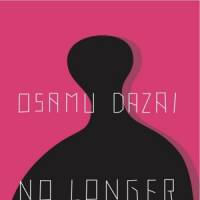Osamu Dazai's "No Longer Human" comprises a series of three fictionalized notebooks, with each increasingly darker than the last. The character writing these books, Yozo, is detached from the beginning and is afraid of human interactions, but he learns how to socialize with people by playing the clown and entertaining his way into favor from a young age. Yet his alienation remains, despite how he may appear from the outside.
No Longer Human, by Osamu Dazai, Translated by Donald Keene.
New Directons, Fiction.
"People talk of social outcasts," Dazai writes through Yozo. "The words apparently denote the miserable losers of the world, the vicious ones, but I feel as though I have been a 'social outcast' from the moment I was born."
After Yozo moves to Tokyo, he is captivated by the combination of the allure of women and alcoholic mirth, yet his enjoyment of life soon dissipates as he develops an alcohol addiction, and even the love of women does little to alleviate his internal suffering. The work recalls Fyodor Dostoyevsky's "Notes From the Underground," another novel about a misanthropic young man alienated from society and sickened by humanity in general.
Although the events of "No Longer Human" bare similarity to Dazai's own personal life, the blunt style — without sentiment or nostalgia — distances it from the tone of an actual autobiography. The novel has a timeless quality: The struggle of the individual to fit into a normalizing society remains just as relevant today as it was at the time of writing.
Read archived reviews of Japanese classics at jtimes.jp/essential.

















With your current subscription plan you can comment on stories. However, before writing your first comment, please create a display name in the Profile section of your subscriber account page.